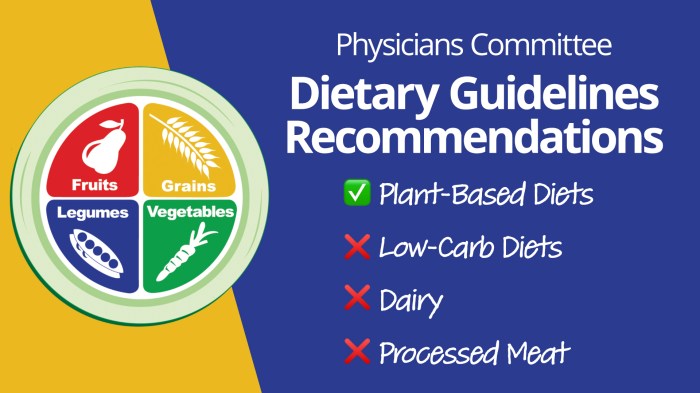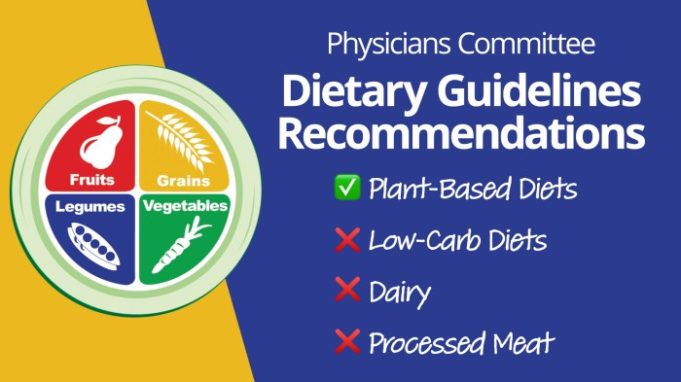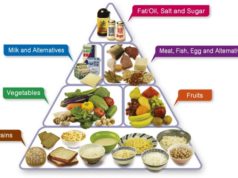Recommended Dietary Allowance for people with specific medical conditions is a crucial aspect of healthcare, recognizing that individual needs often deviate from general guidelines. This exploration delves into the intricacies of how various medical conditions necessitate tailored dietary adjustments, ultimately aiming to improve overall health and well-being.
The Recommended Dietary Allowance (RDA) serves as a foundation for healthy eating, providing guidelines for essential nutrients based on factors like age, sex, and activity level. However, when medical conditions come into play, these recommendations must be adapted to address specific nutritional requirements. For instance, individuals with diabetes need to prioritize blood sugar control, while those with cardiovascular disease focus on reducing cholesterol and blood pressure. Understanding these unique needs allows for personalized dietary plans that support optimal health outcomes.
Understanding Dietary Allowances: Recommended Dietary Allowance For People With Specific Medical Conditions
The Recommended Dietary Allowances (RDAs) are guidelines for the amount of essential nutrients that individuals need to consume daily to maintain good health. These recommendations are based on scientific evidence and are updated regularly to reflect the latest research. Understanding and following RDAs can help individuals optimize their nutrition and reduce the risk of developing nutrient deficiencies or chronic diseases.
Factors Influencing RDA Recommendations
RDAs are not one-size-fits-all. They are tailored to specific individuals based on various factors, including age, sex, and physical activity level.
- Age: Nutrient requirements vary throughout the lifespan. For example, infants and children have higher requirements for certain nutrients, such as calcium and vitamin D, to support growth and development. Older adults may need more vitamin B12 and calcium to maintain bone health.
- Sex: Men and women have different physiological needs, leading to varying RDAs for some nutrients. For instance, women of childbearing age require more iron due to menstrual blood loss.
- Physical Activity Level: Individuals who engage in regular physical activity require more calories and certain nutrients, such as carbohydrates and protein, to support energy production and muscle recovery.
Essential Nutrients and Their RDAs
The RDAs cover a wide range of essential nutrients, including vitamins, minerals, and macronutrients. These nutrients play vital roles in various bodily functions, from energy production to immune system support.
- Vitamins: Vitamins are organic compounds that the body needs in small amounts. They are involved in various metabolic processes, such as cell growth, vision, and blood clotting. Examples of vitamins and their RDAs include:
- Vitamin A: 900 mcg (men), 700 mcg (women) – Supports vision, immune function, and cell growth.
- Vitamin C: 90 mg (men), 75 mg (women) – Acts as an antioxidant, supports collagen synthesis, and enhances immune function.
- Vitamin D: 15 mcg (men and women) – Promotes calcium absorption, supports bone health, and plays a role in immune function.
- Vitamin E: 15 mg (men), 15 mg (women) – Acts as an antioxidant, protecting cells from damage.
- Vitamin K: 120 mcg (men), 90 mcg (women) – Essential for blood clotting and bone health.
- Minerals: Minerals are inorganic elements that the body needs in small amounts. They are involved in various functions, such as bone formation, fluid balance, and nerve function. Examples of minerals and their RDAs include:
- Calcium: 1,000 mg (men and women aged 19-50) – Supports bone health, muscle function, and nerve transmission.
- Iron: 8 mg (men), 18 mg (women) – Crucial for oxygen transport in the blood and red blood cell production.
- Magnesium: 420 mg (men), 320 mg (women) – Involved in over 300 enzymatic reactions, including energy production, muscle function, and nerve function.
- Zinc: 11 mg (men), 8 mg (women) – Supports immune function, wound healing, and cell growth.
- Potassium: 4,700 mg (men and women) – Essential for maintaining fluid balance, muscle function, and nerve transmission.
- Macronutrients: Macronutrients are nutrients that the body needs in large amounts. They provide energy and support various bodily functions. Examples of macronutrients and their RDAs include:
- Carbohydrates: 45-65% of total daily calories – Provide energy, fuel brain function, and support muscle activity.
- Protein: 10-35% of total daily calories – Essential for building and repairing tissues, producing enzymes and hormones, and maintaining fluid balance.
- Fat: 20-35% of total daily calories – Provide energy, support hormone production, and insulate organs.
Medical Conditions and Dietary Needs
Certain medical conditions can significantly impact the body’s nutritional requirements, necessitating dietary adjustments to maintain optimal health and manage the condition effectively.
Dietary Adjustments for Diabetes
Diabetes is a chronic condition characterized by high blood sugar levels. Dietary modifications are crucial for managing blood sugar levels and preventing complications. Individuals with diabetes need to carefully monitor their carbohydrate intake, focusing on complex carbohydrates like whole grains, fruits, and vegetables.
The American Diabetes Association recommends a balanced diet that includes 45-65% of calories from carbohydrates, 20-35% from fat, and 10-35% from protein.
They should also limit their intake of saturated and trans fats, cholesterol, and added sugars.
Dietary Adjustments for Cardiovascular Disease
Cardiovascular disease, including heart disease and stroke, is a leading cause of death worldwide. Dietary changes can play a significant role in reducing the risk of developing and managing cardiovascular disease.
The American Heart Association recommends a diet rich in fruits, vegetables, whole grains, and lean protein sources.
Individuals with cardiovascular disease should limit their intake of saturated and trans fats, cholesterol, sodium, and added sugars.
Dietary Adjustments for Kidney Disease
Kidney disease affects the body’s ability to filter waste products from the blood. Dietary adjustments are essential for managing kidney disease and preventing further damage. Individuals with kidney disease often need to restrict their intake of protein, potassium, phosphorus, and sodium.
The National Kidney Foundation recommends a diet that is low in protein, potassium, phosphorus, and sodium.
They should also consume plenty of fluids to help flush out waste products.
Dietary Recommendations for Specific Conditions
Dietary recommendations play a crucial role in managing and improving various medical conditions. By tailoring food choices to specific health needs, individuals can positively impact their overall well-being and reduce the risk of complications.
Dietary Recommendations for Individuals with Diabetes
Diabetes is a chronic condition characterized by elevated blood sugar levels. Maintaining stable blood sugar levels is paramount for individuals with diabetes. This can be achieved through a balanced diet that emphasizes whole grains, lean protein, and non-starchy vegetables.
| Condition | Key Dietary Considerations | Recommended Foods | Foods to Limit |
|---|---|---|---|
| Diabetes | Control blood sugar levels | Whole grains, lean protein, non-starchy vegetables | Processed foods, sugary drinks, saturated fats |
The rationale behind these recommendations lies in the glycemic index (GI) of foods. The GI measures how quickly a food raises blood sugar levels. Foods with a low GI, such as whole grains, release glucose gradually, preventing rapid spikes in blood sugar. Lean protein and non-starchy vegetables provide essential nutrients without significantly impacting blood sugar levels.
Conversely, processed foods, sugary drinks, and saturated fats have a high GI, leading to rapid blood sugar fluctuations. Limiting these foods helps stabilize blood sugar levels and improve overall blood sugar control.
Dietary Recommendations for Individuals with Cardiovascular Disease
Cardiovascular disease (CVD) encompasses conditions affecting the heart and blood vessels. A heart-healthy diet is essential for managing CVD and reducing the risk of complications. This diet emphasizes fruits, vegetables, whole grains, and lean protein while limiting red meat, saturated fats, and processed foods.
| Condition | Key Dietary Considerations | Recommended Foods | Foods to Limit |
|---|---|---|---|
| Cardiovascular Disease | Reduce cholesterol and blood pressure | Fruits, vegetables, whole grains, lean protein | Red meat, saturated fats, processed foods |
The rationale behind these recommendations stems from the impact of dietary components on cholesterol levels and blood pressure. Fruits, vegetables, and whole grains are rich in fiber, which helps lower cholesterol levels and regulate blood pressure. Lean protein sources, such as fish and poultry, provide essential nutrients without contributing to high cholesterol levels.
Red meat, saturated fats, and processed foods are high in cholesterol and saturated fats, which can raise LDL (“bad”) cholesterol levels and increase the risk of heart disease. Limiting these foods helps reduce cholesterol levels and improve cardiovascular health.
Dietary Recommendations for Individuals with Kidney Disease
Kidney disease affects the kidneys’ ability to filter waste products from the blood. Individuals with kidney disease often need to limit phosphorus and potassium intake. A diet rich in fruits, vegetables, and lean protein can provide essential nutrients while managing these restrictions.
| Condition | Key Dietary Considerations | Recommended Foods | Foods to Limit |
|---|---|---|---|
| Kidney Disease | Limit phosphorus and potassium | Fruits, vegetables, lean protein | Dairy products, processed meats, high-potassium fruits and vegetables |
The rationale behind these recommendations lies in the role of phosphorus and potassium in kidney function. Excess phosphorus can accumulate in the blood, leading to bone disease and cardiovascular problems. High potassium levels can disrupt the balance of electrolytes in the body, impacting heart function.
Dairy products, processed meats, and high-potassium fruits and vegetables are typically high in phosphorus and potassium. Limiting these foods helps prevent excessive intake and protect kidney function.
Nutritional Supplements and Considerations
Nutritional supplements can play a valuable role in supporting individuals with specific medical conditions by providing essential nutrients that may be deficient in their diet. These supplements can help address nutritional gaps, support overall health, and manage symptoms associated with certain conditions.
Types of Supplements and Their Mechanisms of Action
Supplements are available in various forms, including vitamins, minerals, herbs, and other compounds. They work by providing the body with essential nutrients that may be lacking due to dietary restrictions, malabsorption, or increased needs related to a medical condition. For example, individuals with celiac disease may require supplemental iron due to impaired absorption from the gut.
- Vitamin D: Essential for calcium absorption and bone health. It may be beneficial for individuals with osteoporosis, autoimmune disorders, and certain cancers.
- Omega-3 Fatty Acids: Found in fatty fish, these fatty acids have anti-inflammatory properties and may help manage conditions like heart disease, rheumatoid arthritis, and depression.
- Probiotics: Live bacteria that can improve gut health and may be helpful for digestive disorders, inflammatory bowel disease, and irritable bowel syndrome.
- Glucosamine and Chondroitin: These compounds are naturally found in cartilage and may help manage osteoarthritis by supporting joint health.
Importance of Consulting a Healthcare Professional
It is crucial to consult a healthcare professional before taking any nutritional supplements, especially if you have a medical condition. They can assess your individual needs, determine appropriate supplements, and monitor for potential interactions with medications or other health conditions.
Potential Risks and Side Effects
While supplements can be beneficial, it’s essential to be aware of potential risks and side effects. Some supplements may interact with medications, cause allergic reactions, or exacerbate existing health conditions. For example, high doses of vitamin A can be toxic, and iron supplements can be harmful for individuals with hemochromatosis.
It is essential to choose supplements from reputable sources and follow recommended dosages.
The Importance of Personalized Nutrition

No two individuals are exactly alike, and this is especially true when it comes to nutritional needs. What works for one person may not work for another, especially when considering the wide range of medical conditions that can affect dietary requirements. Therefore, a personalized approach to nutrition is essential for achieving optimal health and well-being.
Tailoring Dietary Plans to Individual Needs
Personalized nutrition plans consider each individual’s unique medical needs, preferences, and lifestyle factors. This approach ensures that dietary recommendations are tailored to promote optimal health and manage specific medical conditions effectively. For example, a person with diabetes will have different dietary needs than someone with celiac disease. A personalized plan takes these differences into account, providing specific guidance on food choices, portion sizes, and meal timing.
The Role of Registered Dietitians
Registered dietitians (RDs) are qualified healthcare professionals who specialize in nutrition. They play a crucial role in developing and implementing personalized nutrition plans. RDs have the expertise to assess an individual’s medical history, current dietary habits, and specific needs. They can then create a customized dietary plan that is safe, effective, and tailored to the individual’s preferences and lifestyle.
Monitoring and Adjusting Dietary Plans, Recommended Dietary Allowance for people with specific medical conditions
Personalized nutrition is an ongoing process that requires regular monitoring and adjustments. Individuals should work closely with their RD to track their progress, identify any challenges, and make necessary changes to their dietary plan. For example, if a person is not meeting their nutritional goals, their RD may recommend adjustments to their food choices, portion sizes, or meal timing. Regular monitoring and adjustments ensure that the dietary plan remains effective and meets the individual’s evolving needs.
It’s crucial to consult a healthcare professional for personalized dietary advice, especially for those with specific medical conditions. For example, breastfeeding mothers have unique nutritional needs, and a well-balanced diet is essential for both their health and their baby’s.
You can find more information on the Recommended Dietary Allowance for breastfeeding mothers here. Remember, tailored dietary recommendations are vital for optimal health outcomes, regardless of your individual circumstances.
Just like people with specific medical conditions need tailored dietary plans, pregnant women also require a specific intake of nutrients. The Recommended Dietary Allowance for pregnant women emphasizes increased needs for certain vitamins and minerals to support both mother and baby’s health.
Similarly, understanding the RDA for individuals with specific medical conditions is crucial for managing their health and well-being.
Just like people with specific medical conditions need tailored dietary plans, athletes also require a specific intake of nutrients to fuel their performance. You can find comprehensive guidelines on the Recommended Dietary Allowance for athletes on the ToDiet website, which helps you understand how to adjust your diet for optimal training and recovery.
This knowledge can also be applied to people with medical conditions, as understanding the importance of macronutrients and micronutrients is crucial for maintaining overall health and well-being.
























